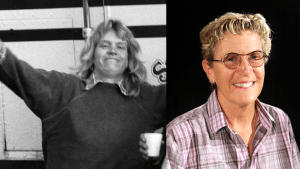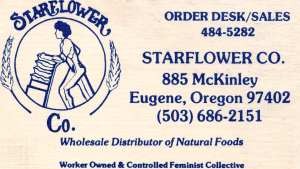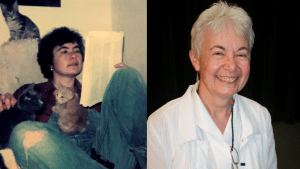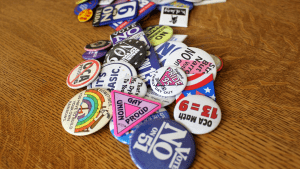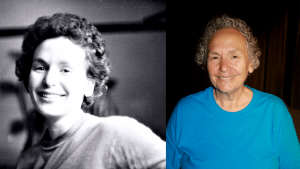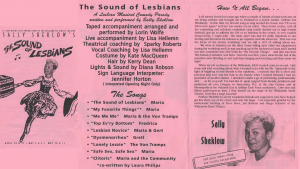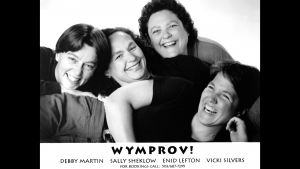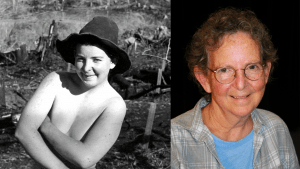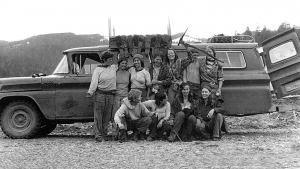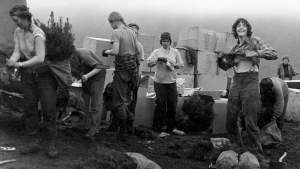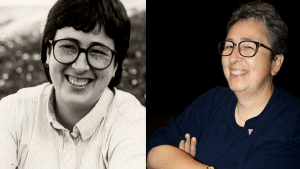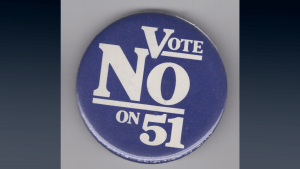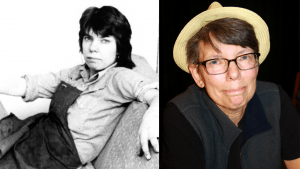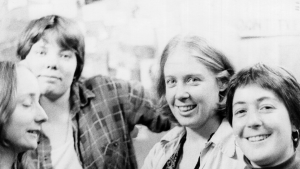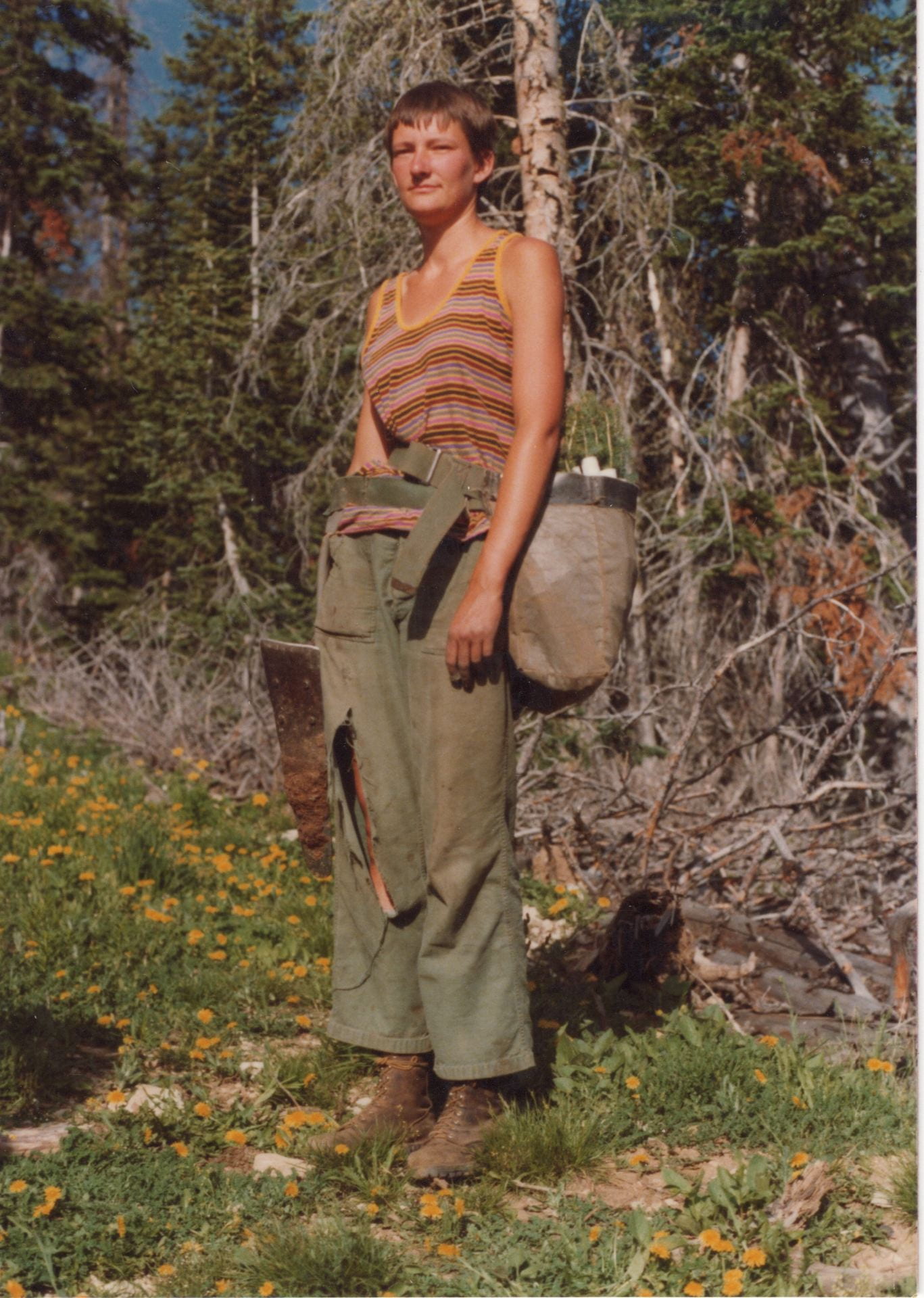Oral Histories
The Eugene Lesbian Oral History Project collections consists of video interviews of 83 women who identified as lesbians when they came to Eugene between the 1960s and the 1980s. The interviews were conducted at the University of Oregon by Judith Raiskin, Associate Professor of Women’s, Gender, and Sexuality Studies, and Linda Long, Manuscript Curator, in the summers of 2018 and 2019. The video recordings and transcripts are available online and can be searched by subject. Related documents, photographs, letters, journals and ephemera are housed in the University of Oregon Special Collections and Archives.
Photo credit: Todd Cooper, Eugene Weekly
Purpose
This project fills in a gap of important history. Much LGBTQ history has been suppressed by the imperatives of the closet and rendered invisible by cataloging traditions embedded in systemic homophobia and heterosexism. These digitally archived interviews and documents preserve this lesbian history and make it publicly accessible.
Inclusive teaching opportunities are at the core of this project since students can watch and listen to “real people” discuss the LGBTQ history they lived. Ideally, this project is an intergenerational experience. Students appreciate watching these videos because they have not had the opportunity to listen to people 50 years older than themselves talk about experiences they had when they were roughly the students’ age. Students are surprised and challenged by the shifting understandings of sexual and gender identity over the last half century.
The digital exhibit provides scholars and educators with curated paths of exploration for their own research and teaching projects. Now anyone in the world with access to the internet can watch these interviews and learn about this remarkable community of lesbians.
“The lack of a publicly accessible history is a devastating form of oppression; lesbians face it constantly.”
Narrators
Subject Areas
Narrators cover a wide range of subjects including lesbian migration to Eugene and Southern Oregon lesbian lands, collective businesses, alternative economies, cultural collectives and art, lesbian and sexual identity, lesbian spaces, printing presses and publications, social and human services, politics, feminism, parenting, marriage, and aging.
Selected Stories from the Archive
Cooperatives
“So I looked into the skills bucket and said, ‘Well, what can I do? Well, I can drive anything.’ Right? And so I saw this ad in the paper: Truck Driver Wanted, Feminist Collective, or something like that. I was like, ‘$3.25 an hour. Well, sure, I can do that,’ and so that’s how I came to Starflower.”
Political Engagement
“It wasn’t about (not to minimize it at all) but it wasn’t just about gay rights. It was also about something more common, even more fundamental, which was our constitutional rights of protection and assembly and association and speech. So it…was kind of more like, wow, this is something bigger that I haven’t really appreciated before.”
Art and Culture
“I got through 15 paid performances of the whole show The Sound of Lesbians before I was called by Rogers and Hammerstein’s copyright attorney and ordered to cease and desist. But it was pretty fun and I got to take out my safe sex kit and have Maria teach the Von Trampp family all about safe sex.”
“I packed up my stuff and left most of it at my sister’s and hitchhiked over to Eugene. They picked me up at Dunkin’ Donuts (that’s where all the tree planters gathered). I go out and there’s this ragtag bunch of women. I was just so high, here was living the dream. Because you have all these women living out and doing–they’re so strong and powerful.”
“So one of the things that we did early on in the running of Jackrabbit was we organized a women and print conference, and people came from all over the West Coast, and it was really kind of an amazing time because there were all these women’s print shops doing printing stuff for women.”
Searching the Archive
The search tools for the Eugene Lesbian Oral History Project allow anyone to pursue their own interests in this rich collection and compare multiple interpretations of events or ideas. If you don’t know where to begin, try some of the terms in the map below or make up your own. Any search term you enter will pull up the relevant interviews and direct you to specific quotations by the narrators. The tutorial and search term suggestions in this section will help you choose your own adventure.
